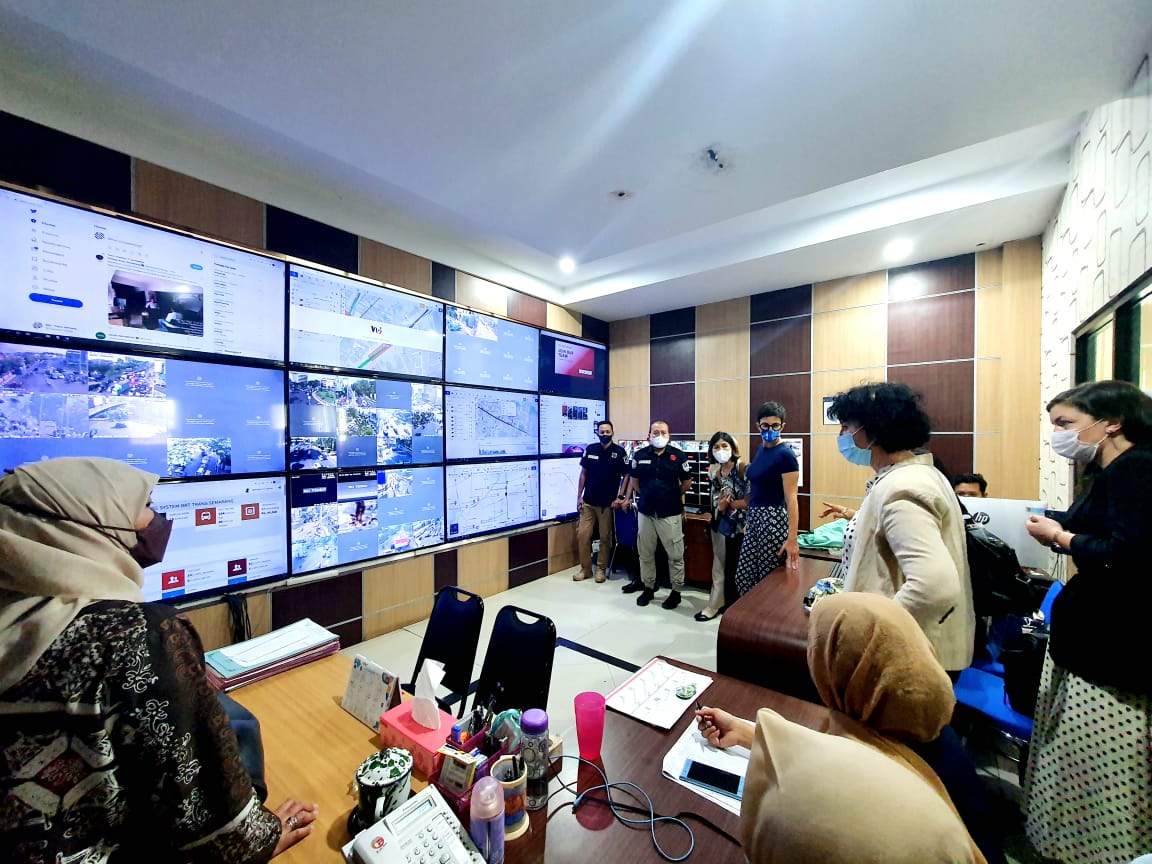The IURC programme organised a study visit for delegates from Sofia, Bulgaria, to Semarang City, Indonesia, from 28 June to 1 July 2022. The delegation consisted of three officials, led by Ms Iva Vylkova, Advisor to Deputy Mayor of Sofia City. Two other governmental organisations joined the programme, namely SOfia GREEN” – a project of Sofia Municipality, represented by Ms Elitsa Panayatova, and the Sofia Development Association, represented by Mrs Sevdalina Voynova. They were accompanied by Mrs Heffi Octaviani and Mrs Sri Indah Wibi Nastiti, representative of APEKSI – Association of Indonesia Municipalities, and Ms Dini Laraswati, Country Coordinator for Indonesia.
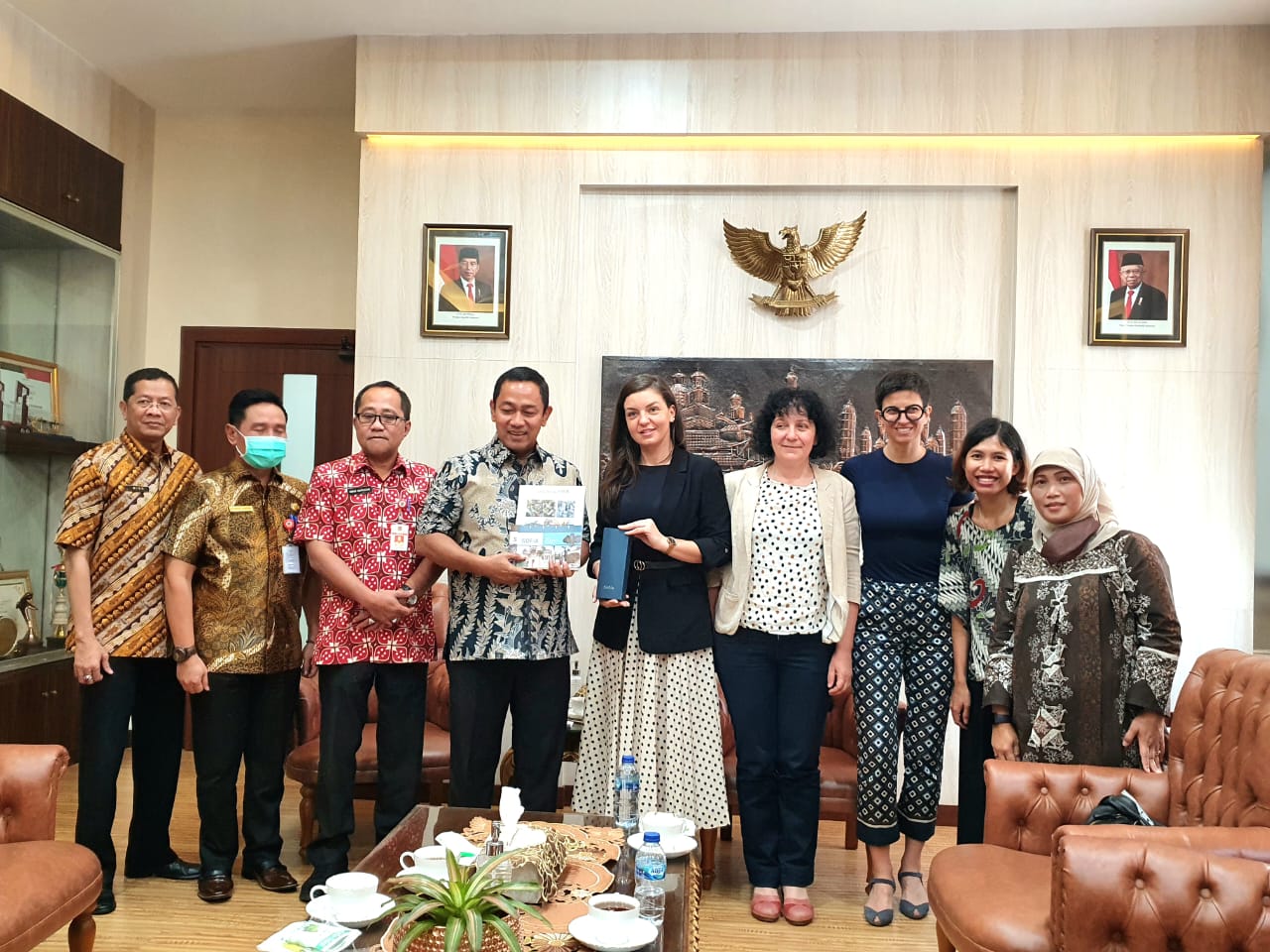
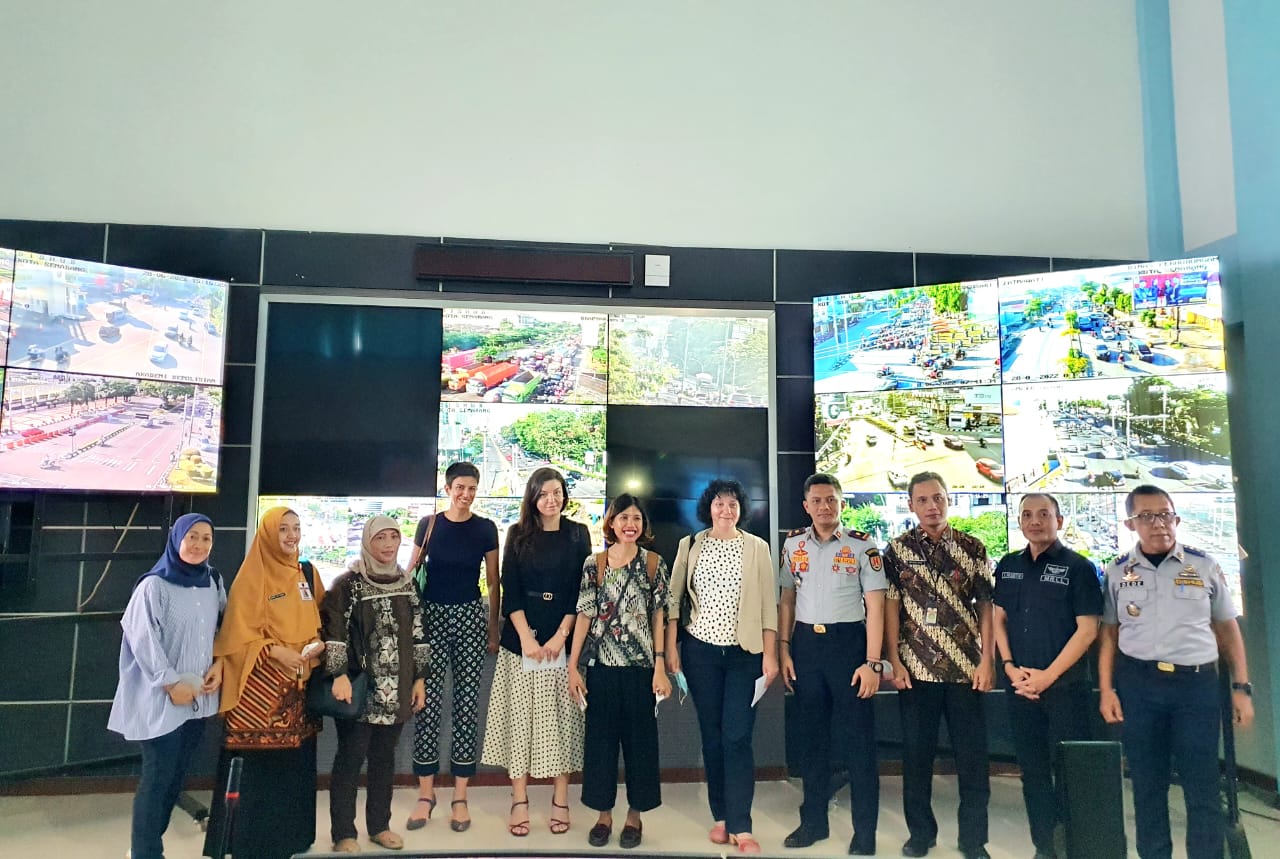
The Mayor of Semarang City, H. Hendrar Prihadi, SE., MM, received the delegation on 28 June and stressed the importance of international cooperation and, in particular, the European Union for supporting the exchange of good practices between the two cities. He also valued the experience of Sofia City in urban mobility shared with Semarang City.
On the first day, the delegates visited the Traffic Control Station of Semarang City, responsible for monitoring and controlling all the traffic signal controllers remotely. The Area Traffic Control System (ATCS) has been tested and successfully deployed at a number of intersections in Semarang. Later they continued the visit to the Bus Trans Semarang Control Centre, where they can monitor the location of the bus unit on a real-time basis, measure the number of passengers, and manage the complaint received.
On the second day, the delegates took a tour of the city using Bus Trans Semarang (BRT) and the feeder bus to better understand the city’s public transport system and plan for improvement. The Bus Trans Semarang provided a special bus travel card for the visually impaired person. It was one of the good mobility practices that Sofia delegates were very impressed with and wanted to introduce to their city. The delegates were eager to see how the BRT provides a portable bus ticket device. It served as the GPS tracker, which linked to the BRT control station. It enabled the passenger to know where the bus was at any moment through the mobile app. The device also informed how many tickets were issued. The delegates also got the experience of riding the feeder bus as a first/last mile solution that helps people get to and from bus stops. Both services are integrated, where an only single payment is required.
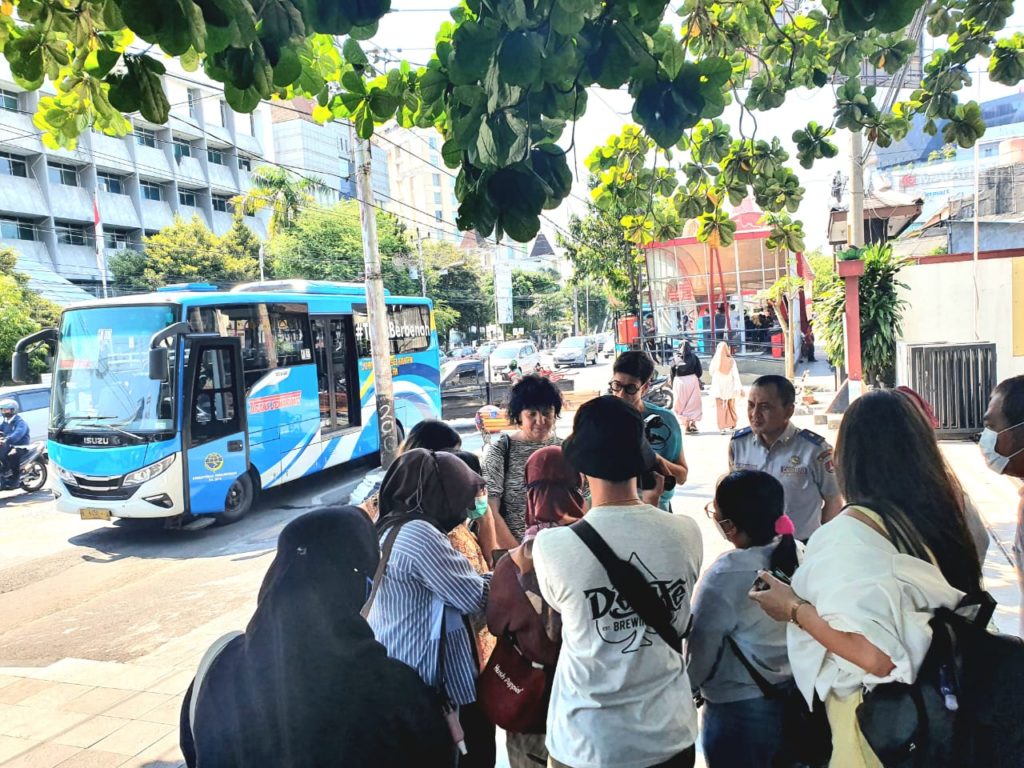
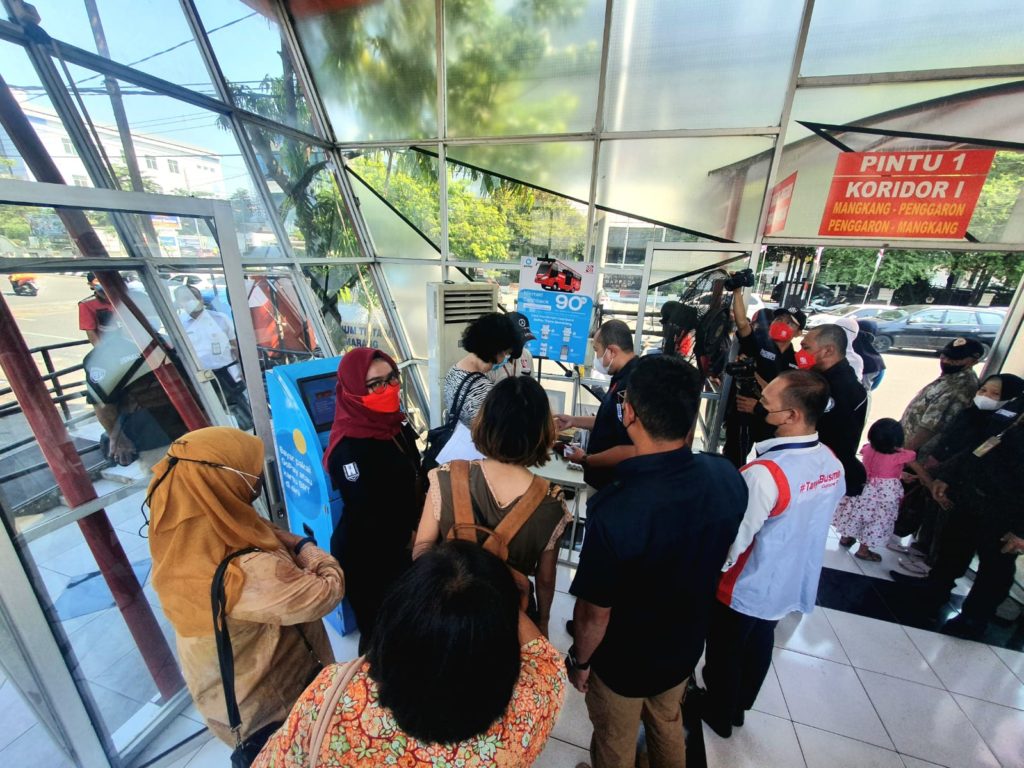
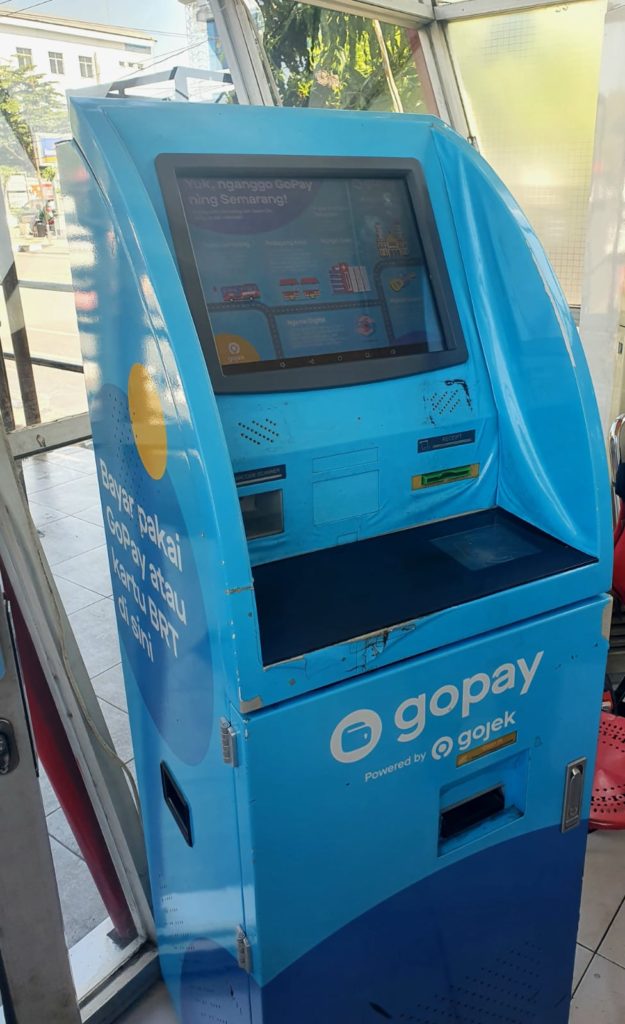
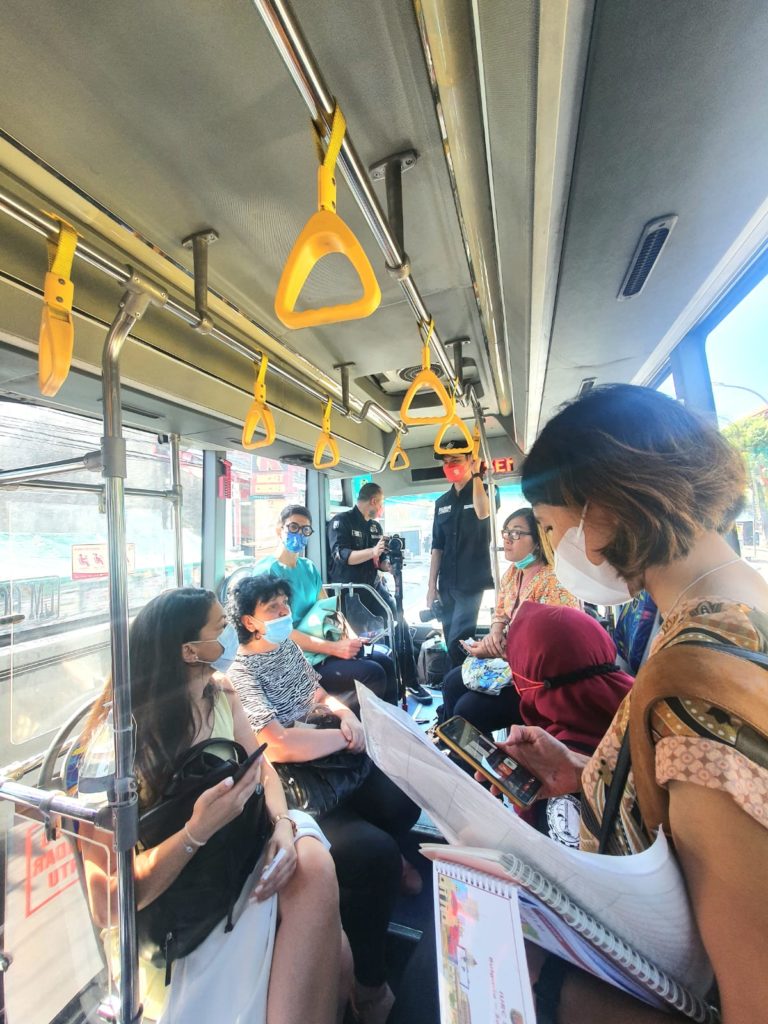
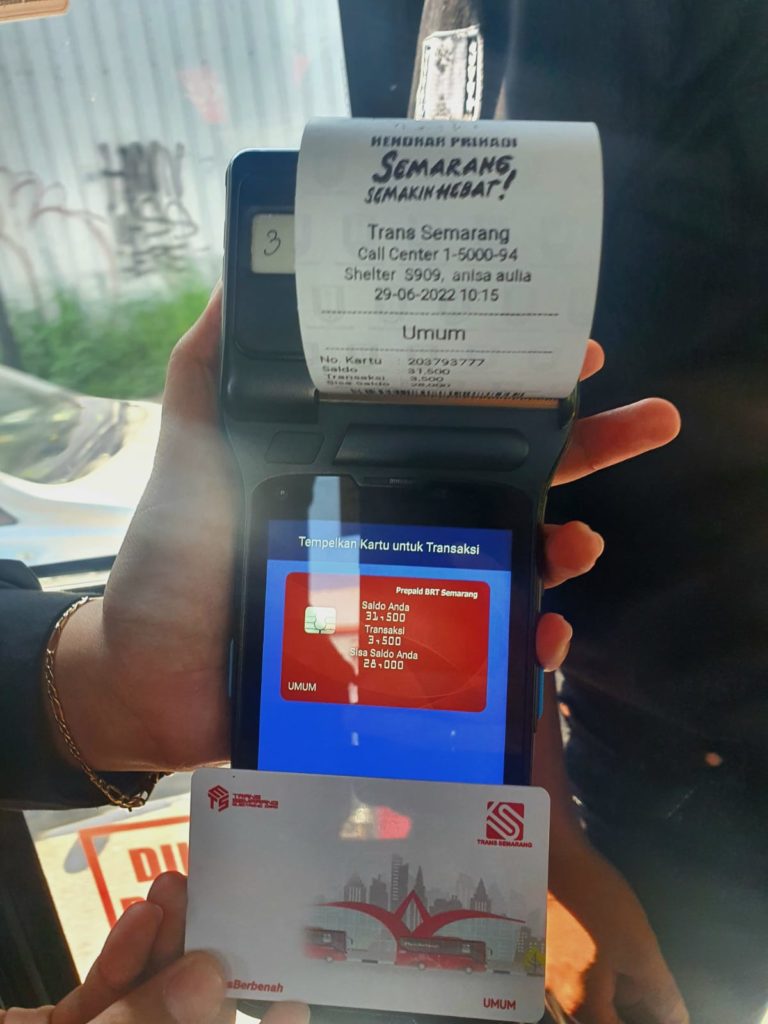
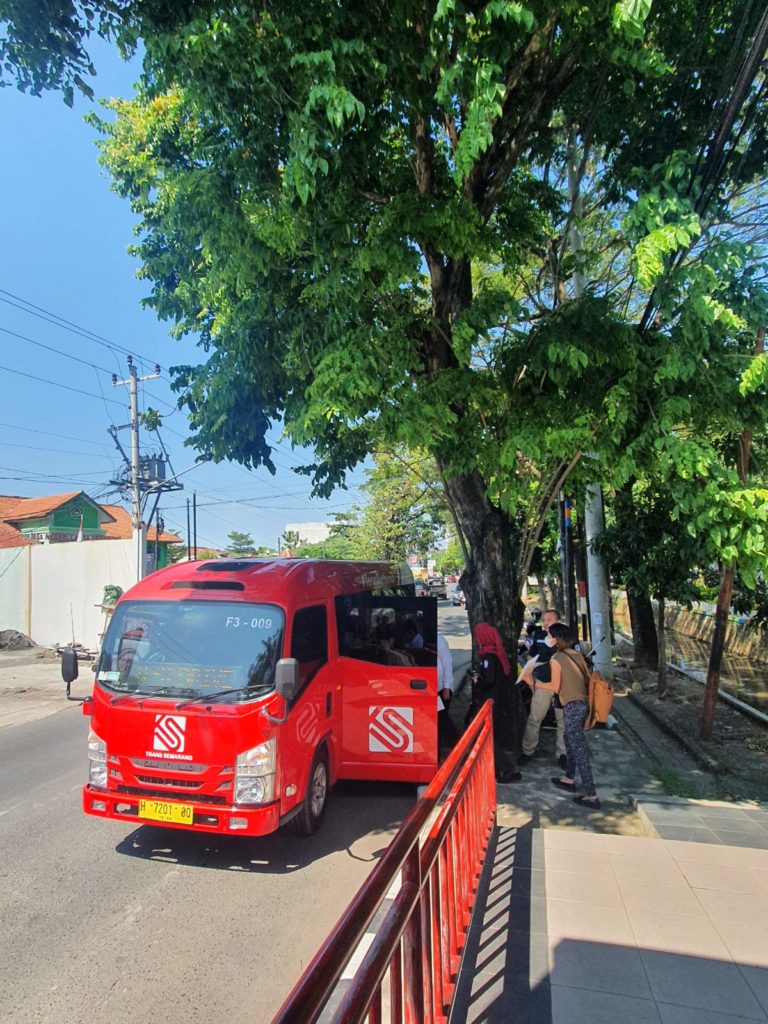
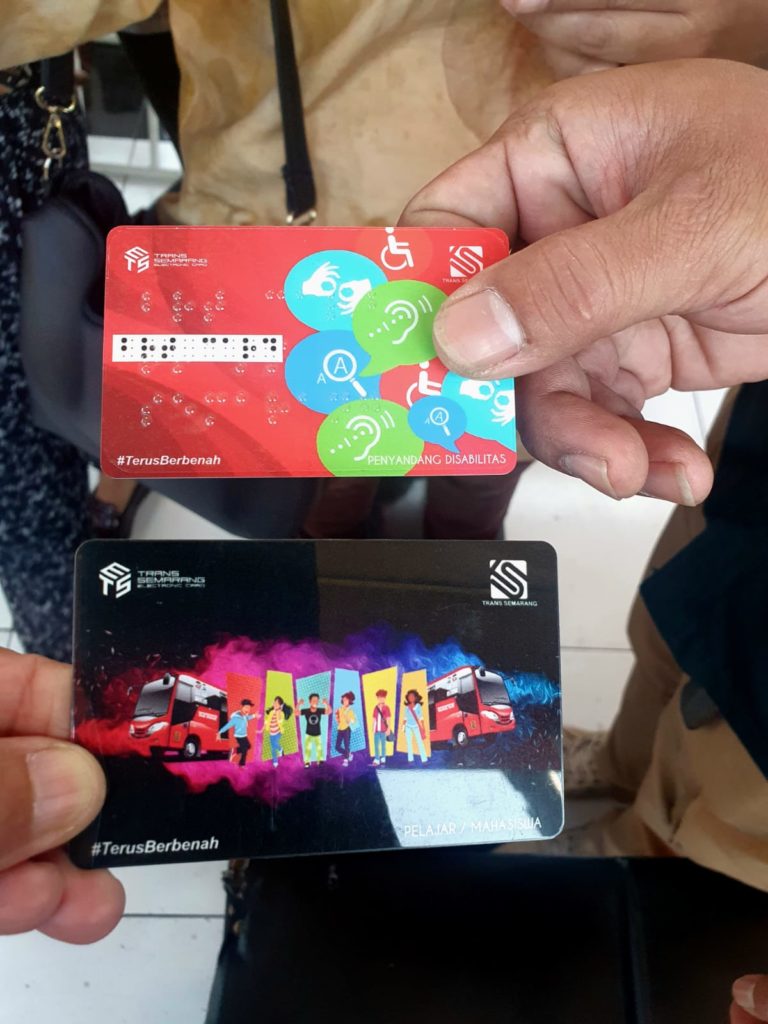
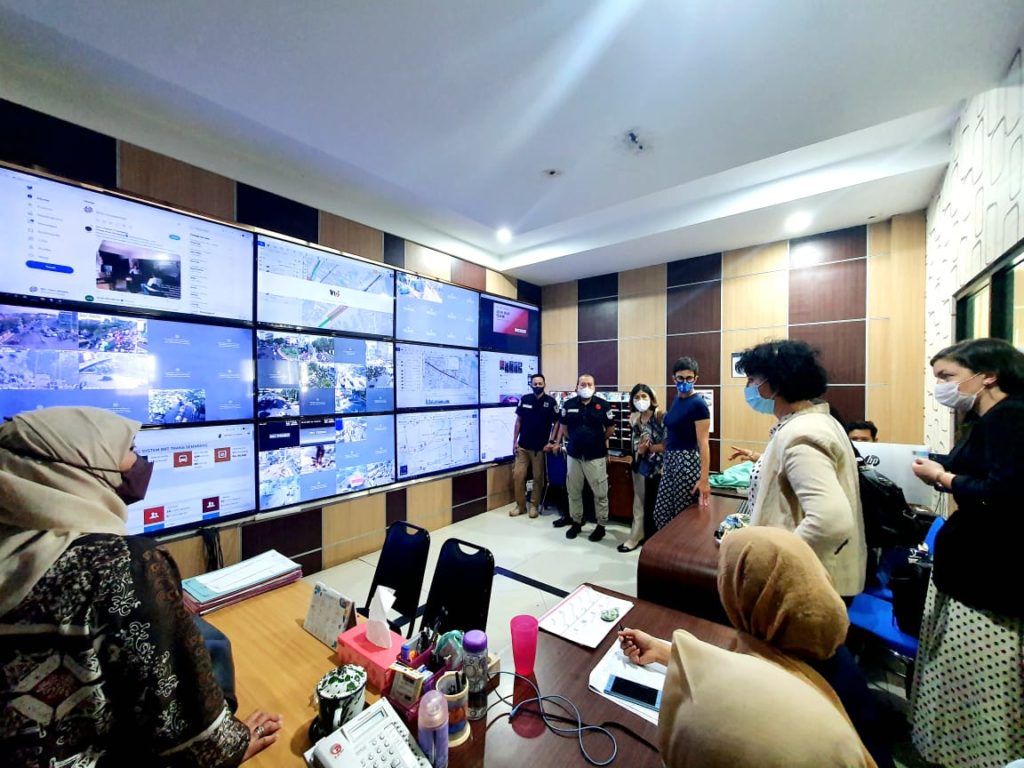
Later that day, Semarang and Sofia officials met representatives from Gojek to exchange their experience in utilising digital technologies. Gojek is a multi-service technology platform that provides access to a wide range of services, including transport. The discussion explored the collaborative data-sharing partnership between Gojek and the Semarang city government to help urban mobility planning.
On the last day, the Sofia delegates managed to sit together with Semarang stakeholders to identify the focused areas for collaborative activities.
- Introduction of innovative ways to encourage the use of BRT, inspired by Sofia Coin. Semarang city showed the willingness to offer an economic incentive for the frequent BRT passengers, e.g., discounted cinema prices and entrance fees for the tourist attraction place. Sofia Coin, a mobile app implemented in Sofia, aims to stimulate a more active lifestyle of citizens and contribute to emission reduction. The users who choose to walk, ride a bike or an electric scooter are awarded various prizes such as gloves, a cycling helmet, or free concert tickets.
- Utilisation of existing data collected by Gojek to expand the coverage of the feeder bus service. Both cities were particularly interested to examine whether the number of Gojek users could represent the potential demand for the feeder bus service. It is expected that both services can complement each other, where the feeder bus is possible to cover the residential area with lower economic income and vice versa. As a matter of fact, the city government has actively experimented with the application of Big Data in the other policy area. The Public Health Agency of Semarang City has cooperated with Gojek to access data regarding the most favourite food in a specific location based on the online food order. The data is very useful to improve the health policy in anticipating food-related diseases.
- To enhance the air quality monitoring data coverage through leveraging the existing urban mobility system. The initial idea was to install real-time air pollution monitoring using wireless sensors on Gojek’s driver partners. Further, Semarang officials expressed the interest to implement the idea on the Bus Trans Semarang.
- Both cities explored the opportunity for public transport advertising to promote tourism. Semarang City was offered to place the promotional ads for Semarang’s tourism products on Sofia’s tram.
- With regard to mobility and smart city, Sofia delegates wished to bring Semarang’s stakeholders to participate in an annual innovation conference organised by Sofia City. Participation could be focused on decentralised cooperation between SMEs and start-ups from Semarang and Sofia which are providing ICT services in the urban mobility area.
Following this visit, Semarang is scheduled to visit Sofia in September. It will further enhance the learning between the two cities and support the implementation of identified pilot projects in the above-mentioned areas.
The Sofia delegates also took the opportunity to meet the Ambassador of Bulgaria to Indonesia, H.E. Mr Petar Andonov, and his Minister Plenipotentiary Consul, Dr Stoimen Veley of the Bulgarian Embassy in Jakarta. The discussion explored possible areas of cooperation to enhance the partnership between Bulgarian cities and Indonesian cities. Further, the delegates visited the office of the Institute for Transportation & Development Policy (ITDP) in Jakarta. ITDP has worked with Semarang since 2017, including Trans Semarang and Low Emission Zone evaluation and other technical recommendations. The shared experience of urban mobility development in other Indonesian cities by ITDP enhanced the knowledge of the current situation on the national scale.
At the end of the study visit, the Sofia delegation met with Mr Seth Van Doorn – Foreign Policy Instruments (FPI) at the EU Delegation to Indonesia – to provide first-hand feedback on the meetings in Semarang and to discuss the next steps in the bilateral cooperation. The FPI manages the IURC project funded by the European Union.
The IURC team wishes to extend thanks to the EU Policy and Outreach Partnership (EUPOP) project in Indonesia for supporting media coverage.
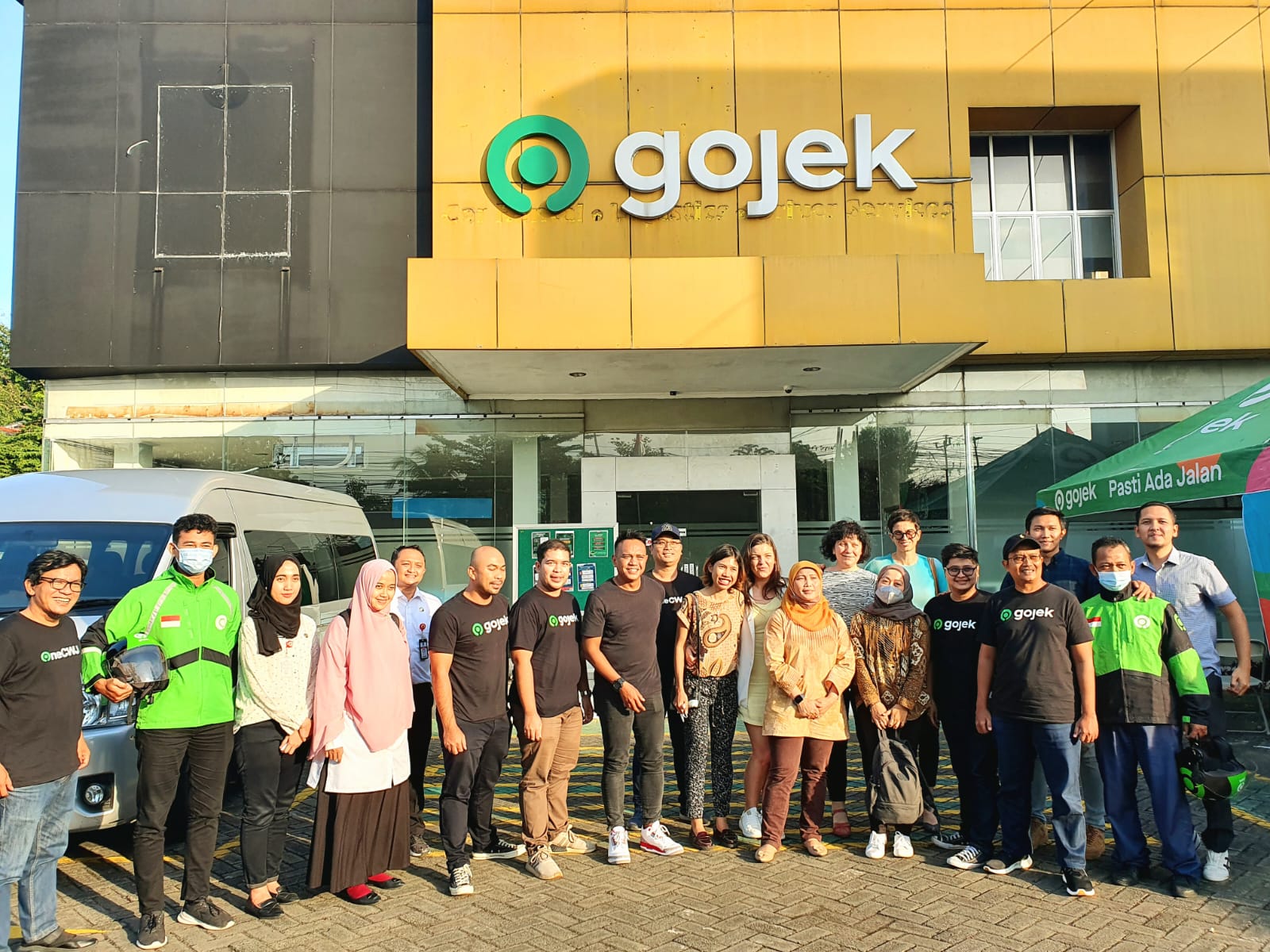
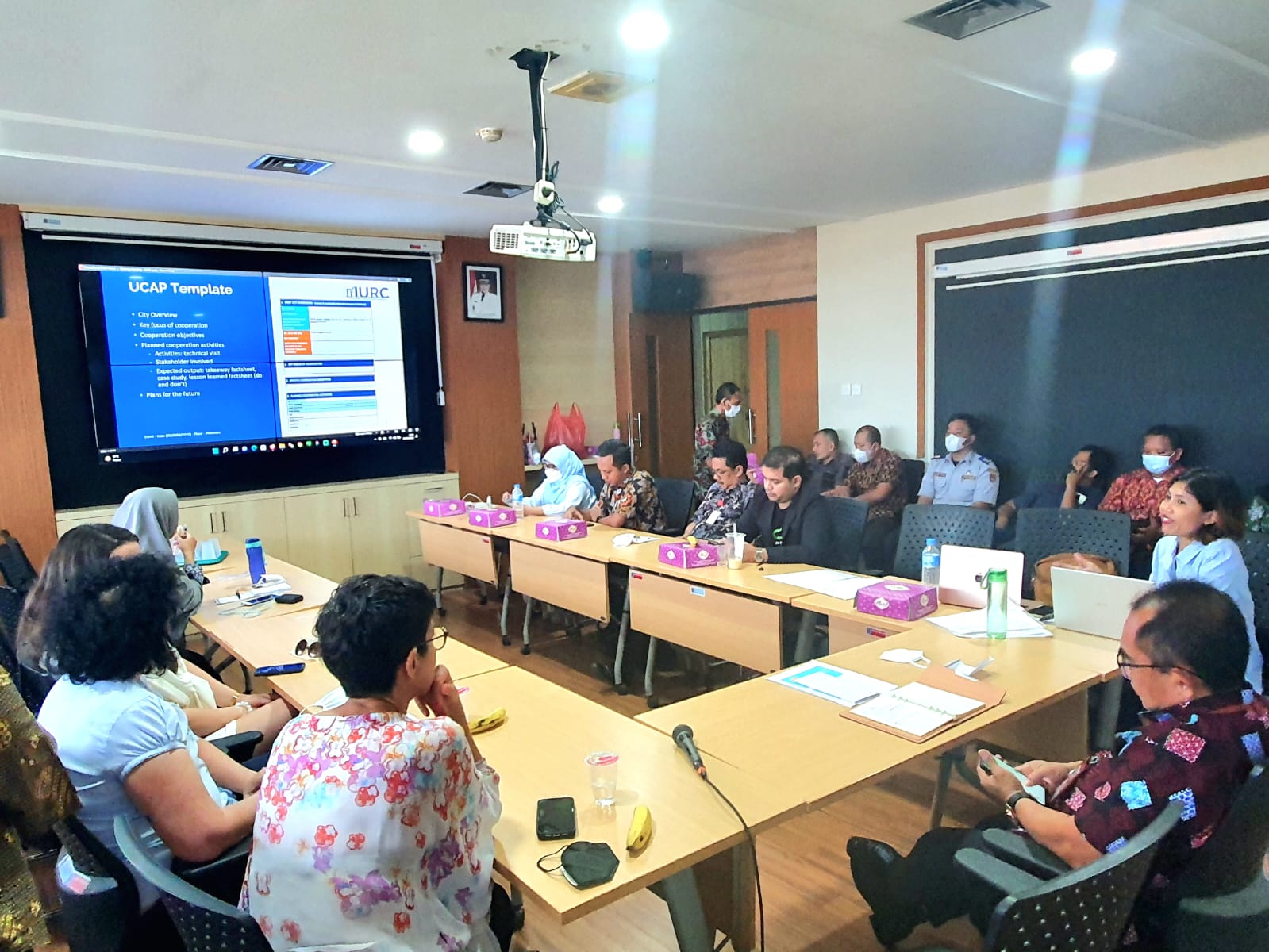
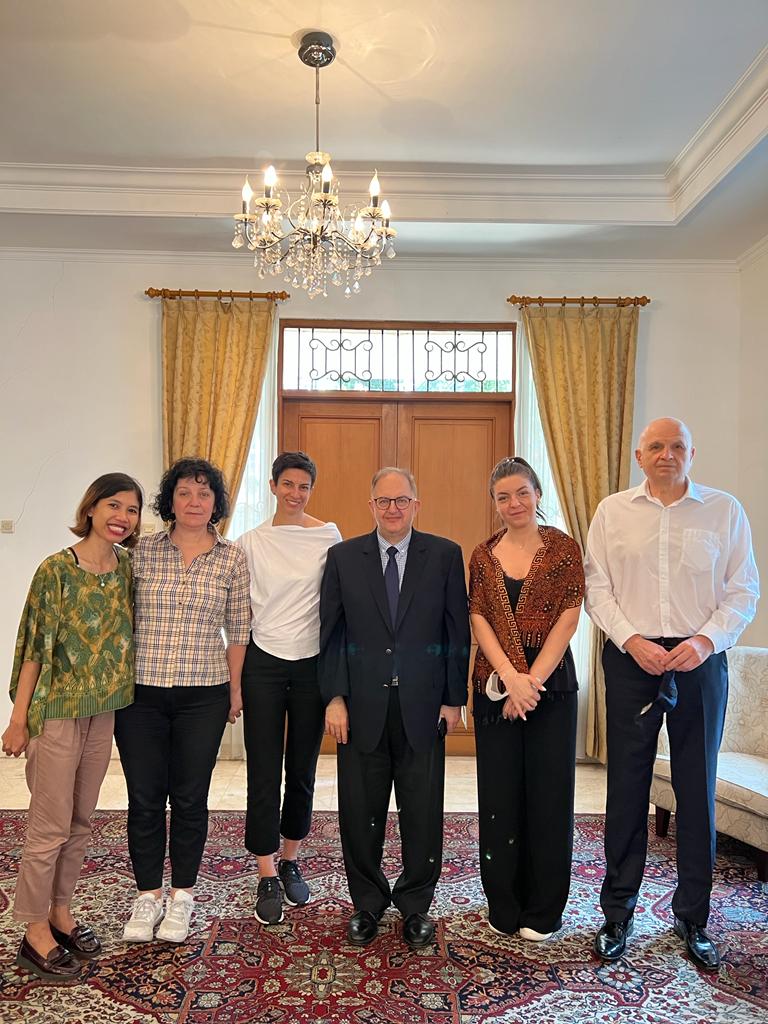
Media coverage: There were 96 media reports, among which are:
- Pemerintah Bulgaria Jadikan Kota Semarang Tempat Percontohan Transportasi Swasta (kompas.com) (Translation: Bulgarian Government Makes Semarang City a Pilot Place for Private Transportation)
- Pemkot Sofia Bulgaria Pelajari Pengelolaan Transportasi Umum di Semarang (detik.com) (Translation: Sofia Bulgaria City Government Learns Public Transportation Management in Semarang)
- Hendi Bertemu Perwakilan Kota Sofia Bahas Pengembangan Transportasi Umum | Pemerintah Kota Semarang (semarangkota.go.id) (Translation: Hendi Meets Sofia City Representatives to Discuss Public Transportation Development)
- Semarang dan Sofia berbagi pengalaman kelola sarana transportasi umum – ANTARA News (Translation: Semarang and Sofia share their experiences in managing public transportation facilities)
